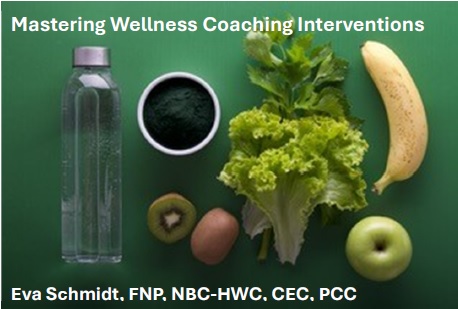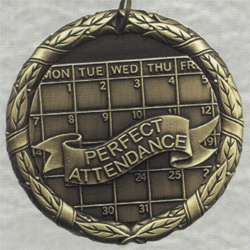 Mastering Wellness Coaching Interventions is a 14-hour training experience focusing on teaching the specific interventions you’ll use as a wellness coach.
Mastering Wellness Coaching Interventions is a 14-hour training experience focusing on teaching the specific interventions you’ll use as a wellness coach.
Mastering Wellness Coaching Interventions
Eva Schmidt, FNP-BC, NBC-HWC, CMC, CEC, PCC
 Mastering Wellness Coaching Interventions is a 14-hour training experience focusing on teaching the specific interventions you’ll use as a wellness coach.
Mastering Wellness Coaching Interventions is a 14-hour training experience focusing on teaching the specific interventions you’ll use as a wellness coach.
Eva Schmidt, FNP-BC, NBC-HWC, CMC, CEC, PCC
Starts November 2025
8 classes of 90 minutes each and a
9th class of 120 minutes
14 hours of CEs and ICF CCEs
14 required hours toward Health and Wellness Coaching Certification
14 hours toward Certified MentorCoach Certification
Tuition:
$695
Or 3 Payments of $249
(plus optional $75 for CA BBS CEs)
(plus optional $20 for ICF CCEs)
Provides 14 hours of CEs for social workers (NASW) and marriage and family therapists in California. Provides 14 hours of CCEs (Core Coaching Competencies) for the International Coach Federation
 Become a Certified Health and Wellness Coach. By taking this course, you will have completed 14 hours toward certification as a Certified Wellness Coach. This course also provides 14 elective hours toward MentorCoach Certification.
Become a Certified Health and Wellness Coach. By taking this course, you will have completed 14 hours toward certification as a Certified Wellness Coach. This course also provides 14 elective hours toward MentorCoach Certification.
1. About the Class
Mastering Wellness Coaching Interventions is designed to put the Health and Wellness coach’s skill-set into action by helping you coach your clients towards their goals of improved lifestyle choices.
Sleeping difficulties, poor diet, overweight/obesity, inactivity, increased stress, energy depletion, or tobacco use bring clients to Health and Wellness coaching and we will address each issues
We’ll also discuss issues unique to different developmental stages including: teens, pre-post pregnancy, menopause and aging.
And we’ll explore evidence-based coaching models for change that have particular use with clients seeking to make and manage sustainable lifestyle changes.
You will leave with your own personal toolbox of evidence-based coaching models and interventions to use with clients who seek coaching for health and wellness challenges.
2. The Eleven Weeks
 Week 1. Introduction and Application of Basic Coaching Knowledge to Health and Wellness Coaching. Apply Basic Coaching Knowledge including such concepts as Prochaska’s Stages of Change, Self-Efficacy, Self Esteem, to your journey in Health, and Wellness with emphasis on Seligman’s Positive Health. Learn about how MentorCoach’s role in the National Board for Health and Wellness Coaching (NBHWC) is impacting our MCP Health and Wellness Certification.
Week 1. Introduction and Application of Basic Coaching Knowledge to Health and Wellness Coaching. Apply Basic Coaching Knowledge including such concepts as Prochaska’s Stages of Change, Self-Efficacy, Self Esteem, to your journey in Health, and Wellness with emphasis on Seligman’s Positive Health. Learn about how MentorCoach’s role in the National Board for Health and Wellness Coaching (NBHWC) is impacting our MCP Health and Wellness Certification.
Week 2. Evidence-based Goal Setting Strategies and Research related to Willpower and Mindsets to Health and Wellness Coaching: Explore how Heidi Grant Halverson’s classes/contributions to If-Then Goal setting and Prevention versus Promotion Mindsets, and Roy Baumeister’s research on Willpower inform Health and Wellness sustainable change. Also, experience the use of Gabrielle Oetingen’s self-regulatory WOOP (Wish, Outcome, Obstacle and Plan) evidence-based model can be used for Health and Wellness behavior change.
Week 3. Evidence-based and Bio-Psycho-Social Strategies and Interventions for Understanding Health, Wellness and Well-being: Learn how Kegan and Lahey’s Immunity to Change, Social and Emotional Intelligence and Precision Medicine inform Health and Wellness coaching now and into the future. Learn how to blend Body Centered Coaching, Meaning and Purpose, Powerful Questions related to Client Experience and use of Coach’s knowledge using Eva’s Approach to Health and Wellness Coaching and the relevant use of wearable devices for ‘just-in-time’evidence of health behavior change.
Week 4. Motivational Interviewing in Health and Wellness Coaching: Compare and contrast Coaching and Motivational Interviewing(MI) in Health and Wellness Coaching using two approaches to MI. Both Miller and Rollnick’s approach, initially designed to address addiction and Berger &Villaume’s approach based on Sensemaking Theory will be examined.
Week 5. Evidence-based Coaching Strategies for Sleep, Rest, Energy and Stress Management. Explore the critical value of sleep related to ALL behavior Change and Energy Management. Apply research related to sleep requirements for different developmental stages of life and learn how different approaches to rest Matthew Edlund’s “Power of Rest” can be leveraged for client health and wellbeing. The impact of Stress and strategies re: stress management will be included.
Week 6. Evidence-based Coaching Strategies related to increasing physical activity/fitness and ‘just moving’. Explore and experience the different approaches a coach might use to getting clients moving and learning about different types of activities that are workable for clients related again to purpose/meaning, experience, beliefs, and knowledge. Specific attention will be paid to language, ways clients like to move, environment, and tracking using wearable tracking devices.
Week 7. Evidence-Based Coaching for Weight Management. Experience the different types of strategies needed for weight management based on: 1) the client’s purposes/meaning; 2) the client’s experience; 3) the client’s history and beliefs about food and nutrition; and 4) The client’s knowledge and the potential need for the Coach’s knowledge regarding national standards and research.
Week 8. Evidence-Based Coaching Strategies for Smoking Cessation and Health/Wellness for different Developmental Stages including mid-life/late-life transitions. Explore how to anticipate client’s challenges in a non-judgemental way with smoking cessation BEYOND the addictive characteristics of nicotine and other substances. Attend to the neurplasticity and body-centered coaching strategies that can enhance the challenges client’s face for more success in coaching for behavior change. Examine how ‘lessons learned’ in the previous weeks in this class apply to mid-life and later-life transitions.
Week 9. Evidence-Based Strategies coaching strategies to assist clients with their own self-care and coping with family/genetic concerns about heart disease risk factors and other chronic conditions. Assisting clients through coaching with strategies (other than opiods and other addictive substances) with pain management including: integrative medicine approaches including but not limited to acupuncture, massage therapy, exercise, attention to body-signals that are triggered with overuse of body-parts and other non-pharmaceutical, potentially addictive approaches using coaching, behavior change strategies.
Week 10. Discussion of the use of the Community Resiliency Model (CRM) as a positive psychology- related approach to working with individuals dealing with stress, trauma, and being knocked out of their resiliency zone. Focus on assisting coaching clients with self-management and assisting (from a neuroscience perspective) clients to learn to notice and track heart rate, breathing and other biological responses to mindful, resiliency-designed strategies for self-care and returning to resiliency zone.
Week 11. Case Studies Related to Learning through Projects and Presentations. Wrap-up. Class members will work on individual projects related to one of three options: 1) applying a particular evidence-based strategy to at least 6 sessions working with a coaching client on a health/wellness related issue; 2) focus on an indepth exploration of the use of ONE of the evidence-based approaches to Health and Wellness coaching for application into their coaching practice; 3) Identify how a specific evidence-based coaching approach could be used in a larger populations for individuals in the class who may be involved or want to be involved in health and wellness coaching programs in organizations, businesses, etc.
3. Open to All
There are no prerequisites for this class. It is open to all, both within the MentorCoach Community and without.
4. Coach Certification
 This class provides 14 hours toward Certification as a Certified Health & Wellness Coach for students meeting the attendance requirement. This class also provides 14 hours toward MentorCoach Certification as a Certified MentorCoach as an elective for students meeting the class attendance requirement. It can also provide 14 hours toward ICF Certification via an Accredited Coach Training Program such as MentorCoach or via the ICF Portfolio Approach.
This class provides 14 hours toward Certification as a Certified Health & Wellness Coach for students meeting the attendance requirement. This class also provides 14 hours toward MentorCoach Certification as a Certified MentorCoach as an elective for students meeting the class attendance requirement. It can also provide 14 hours toward ICF Certification via an Accredited Coach Training Program such as MentorCoach or via the ICF Portfolio Approach.
5. ICF Coach Continuing Education
 This class is approved for 14 CCEs in Core Competencies from the International Coaching Federation for students meeting the class attendance requirement (See #8 below.) There is a $20 fee for ICF CCEs.
This class is approved for 14 CCEs in Core Competencies from the International Coaching Federation for students meeting the class attendance requirement (See #8 below.) There is a $20 fee for ICF CCEs.
6. Board Continuing Education (CEs)

This class is approved for 14 hours of CEs for Marriage and Family Therapists in California (CA BBS). The CE administration fee is $75. CEs for psychologists (APA) are not provided for this class.
To receive credit for CEs, students must pay the CE fee and be present for 11 of the 14 class hours.
Note: The CE fee applies only if you are a Licensed Marriage and Family Therapist in California and need CEs from this organization. Otherwise, when you register, indicate that you do not need to pay the CE fee by choosing the “Base Unit Price with NO CE’s” registration option.
7. Class Schedule
Starts November 2025
8. Attendance Requirements
 Every class is recorded. You may listen to some or all of the classes by recording at your leisure.
Every class is recorded. You may listen to some or all of the classes by recording at your leisure.
However, to receive credit for CEs, ICF CCEUs, credit toward Health & Wellness Coaching Certification or MentorCoach Certification, or to receive a Certificate of Completion, you must be present for 11 of the 14 class hours. (How do you receive attendance credit for half of a class? By being present only at the beginning or end of a class.)
Listening to the class by recording CAN count toward 14 hours of ICF CEs in Resource Development. To pursue this option, contact the trainer after you enroll.
9. Refund Policy

You may withdraw your registration at any time before the beginning of the second class and receive a full refund. You are responsible for the full tuition amount if you do not withdraw before the beginning of the second class.

Eva Schmidt has unusually rich experience in both the wellness and business coaching arenas. With 5000 hours of coaching experience, Eva is an NBHWC Certified Health and Wellness Coach, a Certified Executive Coach (CEC), a Certified MentorCoach®, an ICF Professional Certified Coach (PCC), and a Board-Certified Family Nurse Practitioner. As founder of 3 Springs Coaching, she combines her nearly two decades of experience in healthcare and business coaching to serve her clients.
Eva is also the former owner and partner of a large family practice in Eugene, Oregon. She recently served as the Clinical Director and medical provider for one of the largest employer-based healthcare companies in the country, where she integrated health coaching into patient care.
Eva’s deep corporate experience includes her time serving as a corporate executive in the banking industry. Eva knows first-hand the importance of good leadership. Her experience includes several years in the banking and mortgage industry overseeing multimillion-dollar business loan portfolios and serving as Operations Manager for the construction lending division of a large East Coast bank.
A Certified Executive Coach, Eva enjoys working with life and business issues for executives, contributing to the success of individuals and organizations. And having made a midlife career change, she lends unique insight to that process and understands the stress and often paralyzing anxiety that can sometimes accompany a life or career transition.
A gifted teacher, Eva loves working with students, supporting them in building exciting and rewarding coaching practices. She serves as a senior member of the MentorCoach Trainer Team and the MentorCoach Health and Wellness Faculty.
Eva lives with her husband near Eugene, Oregon. In her free time, she enjoys writing, gardening, and enjoying the beauty and many outdoor offerings of the Pacific Northwest. Eva’s website is 3springscoaching.com.

